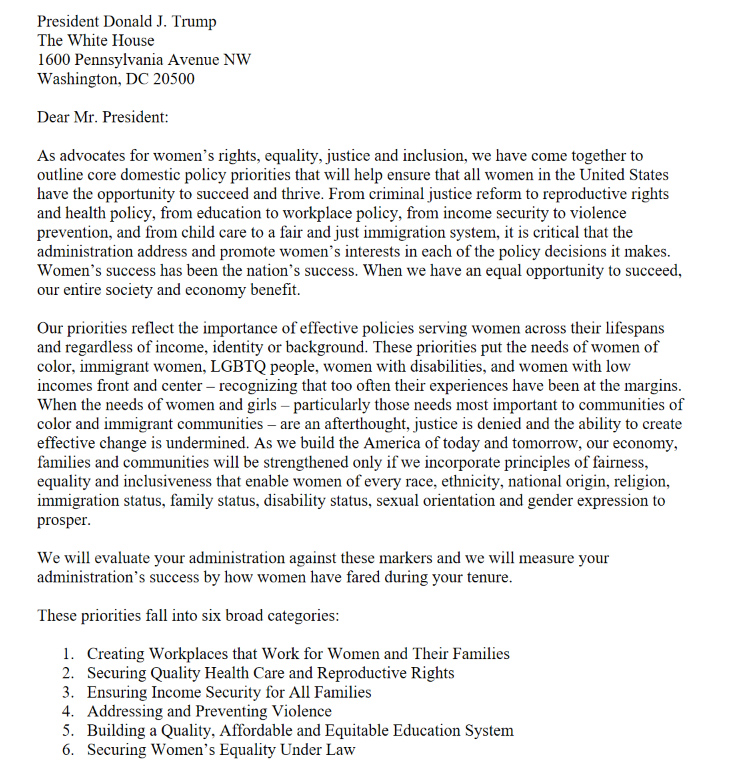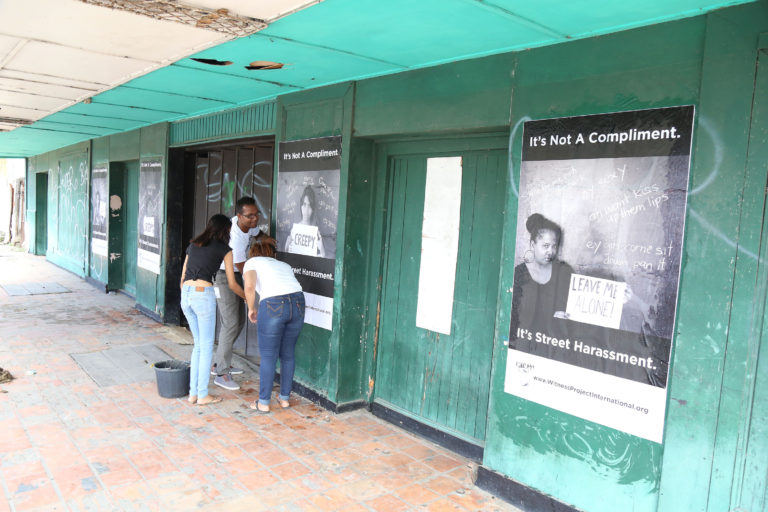Women in the United States are alarmed by a Trump administration agenda that has already done grave harm to families across the country and undermined essentials rights and protections. That’s why today, Stop Street Harassment joined more than 300 organizations across the nation that advocate for women’s rights, equality, justice and inclusion in sending a letter to the president urging him to build a more fair, just and equal nation.
The letter outlines six domestic policy areas that are critical to women and all families, and upon which the community will evaluate the Trump administration’s success.
Going forward, we hope this list of priorities will be a resource for the administration and members of Congress as they make policy decisions, as well as the media, advocates and anyone who cares about how women fare during the president’s tenure. As we note in the letter, when the country’s 157 million women have an equal opportunity to succeed, our entire society and economy benefit.



